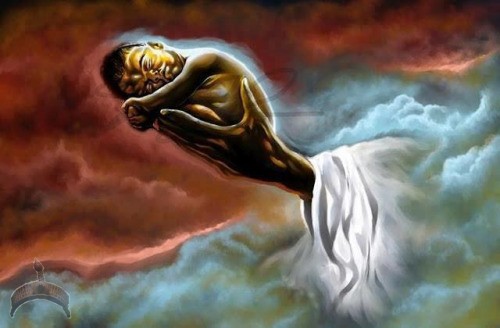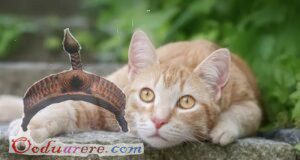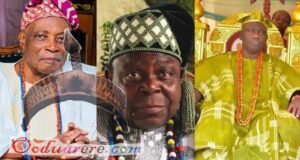Olodumare – Oni Odu Mare- Eni ti O ni Odu ti ko kin re.
Olódùmarè is Olodumare and there is no English word or translation for Olódùmarè. The English Language (The culture of the colonial master) is fund of applying different rules to comparable situations, for the simple reason Olodumare cannot be equal to the small letter g or capital letter g defamation of the Olodoumare. Olódùmarè is also not deity, a lesser god or God. Olódùmarè is simply Olodumare.
Olódùmarè is the monotheistic supreme being, the creator of all the things within ile ti n fe (The Lands that spread) all over the universe. “The one who has a pot that is never exhausted” according to late Professor Sophie Oluwole.
There are many spiritualities, stories, folktales, and fables in Nigeria. These stories are ingrained in people’s history and culture, and they are used to pass on moral principles, customs, and beliefs from one generation to the next.
In order to explain natural events, human behavior, and the beginnings of the universe, spiritualities frequently feature supernatural creatures such as Oriṣa (Human form of the spirit or the saints), and Irunmole (The Spirits). The Yoruba story of creation, “Olodumare and the rest Oriṣa,” was briefly discussed in the video by the legendary late Profesor Sophie Oluwole.
The Yoruba tale of creation is a reflection of their philosophy, cosmology, and cultural principles. According to the story, Olodumare is the all-powerful, all-benevolent supreme being who created the universe out of compassion and love.
In the Yoruba faith, It is regarded as the greatest authority and is symbolic of the ultimate wellspring of
creativity and strength. Olodumare is frequently linked to the idea of fate, which is seen as predetermined and unchangeable.
Oriṣa (Orisha) – Orisa is also not equal in any shape, manner, or likeness to a small letter god or capital letter God. Orisa is simply Orisa. There is also no English word for Oriṣa. Eni ti Ori sa. The chosen one, is the saint, the human form of the spirit. “By default, every Omo karoo Ojire, omo aboorisa, Omoluabi, Omo enife who bears a Yoruba name is an Oriṣa (Orisha)” according to Profesor Moyo Okediji.
Each Oriṣa (Orisha) is linked to a certain element, such as clay for Obatala, iron for Ogun, and the sea for Olokun. They are also linked to particular symbols, such as the fan for Eledua or the double-headed axe for Shango.
The Orisa (Irunmole-Orisa) are the spirit’s human manifestation; although the spirit is superior to people, they are viewed as a bridge between humanity and Olodumare, the ultimate entity.
Therefore, the Yoruba’s devotion to their spiritual form—which is in direct touch with the highest being—is simply shown by their designation as Omo Aboorisa.
This is what they tend to mold in shape and what has led to defamation by other superiority complex cultures who libel Aboorisa to Idol Worshiper. Aboorisa does not mean an idol worshiper, Aboorisa simply means the Yoruba people create what is believed to be their Ori (Irunmole-Spirituality) in shapes and form and they send this Irunmole-Orisa to the supreme being Olodomare to request for all the good things in life.
Irunmole-Orisa are respected as sources of protection, knowledge, and direction because they embody the physical expression of Olodumare’s power.
The Yoruba cultural qualities of harmony, collaboration, and appreciation for variety are also reflected in the Yoruba story of creation. Instead of being viewed as competitors or adversaries, the first set of Oriṣa (Orishas) are viewed as collaborators in the governance of the universe. They cooperate to accomplish shared objectives and enhance each other’s advantages and disadvantages.
 Ọmọ Oòduà Naija Gist | News From Nigeria | Entertainment gist Nigeria|Networking|News.. Visit for Nigeria breaking news , Nigerian Movies , Naija music , Jobs In Nigeria , Naija News , Nollywood, Gist and more
Ọmọ Oòduà Naija Gist | News From Nigeria | Entertainment gist Nigeria|Networking|News.. Visit for Nigeria breaking news , Nigerian Movies , Naija music , Jobs In Nigeria , Naija News , Nollywood, Gist and more








